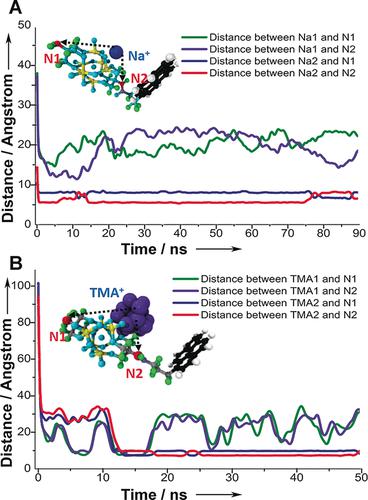Cation Translocation around Single Polyoxometalate-Organic Hybrid Cluster Regulated by Electrostatic and Cation-π Interactions
Dong Li, Zhuonan Liu, Jie Song, Hui Li, Baofang Zhang, Panchao Yin, Zhaoxiong Norm Zheng, James E. Roberts, Mesfin Tsige, Craig L. Hill,* and Tianbo Liu*
[*] Dr. D. Li, Z. Liu, H. Li, Dr. B. Zhang, Dr. P. Yin, Prof. Dr. M. Tsige, Prof. Dr. T. Liu
Department of Polymer Science The University of Akron, OH 44325 (USA)
Dr. J. Song, Prof. Dr. C. L. Hill
Department of Chemistry Emory University Atlanta, GA 30322 (USA)
Dr. Z. N. Zheng, Prof. Dr. J. E. Roberts
Department of Chemistry, Lehigh University Bethlehem, PA 18015 (USA)
Angew. Chem. 2017, 129, 3342 –3346
DOI: 10.1002/ange.201612008
Publication Date (Web): February 15, 2017
Copyright © 2017 Wiley-VCH Verlag GmbH & Co. KGaA, Weinheim
*E-mail: tliu@uakron.edu; chill@emory.edu;

We report herein an interesting dynamic translocation process of countercations around one polyoxometalate(POM)-organic hybrid anionic cluster at various concentrations and temperatures. It was found that both electrostatic interactions and cation-π interactions regulate the position of small countercations around single clusters. The dynamic geometry and the symmetry of the hybrid macroions are largely affected by the type of counterions, as shown by nuclear magnetic resonance (NMR) spectroscopy studies and all‐atom molecular dynamics simulation. It is also shown that electrostatic interactions dominate over cation-π interactions in determining the locations of the counterions in the current system.

